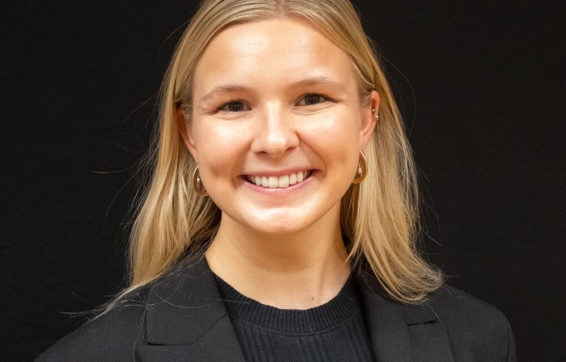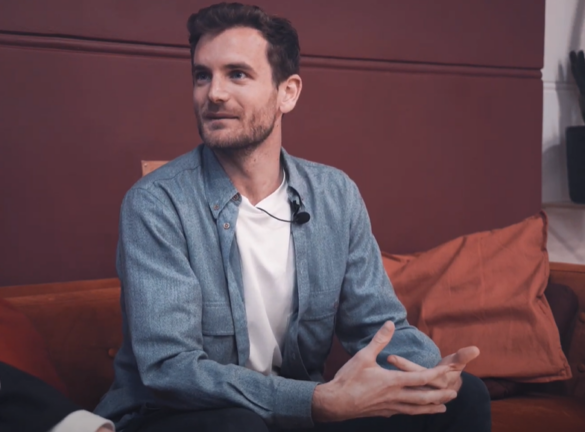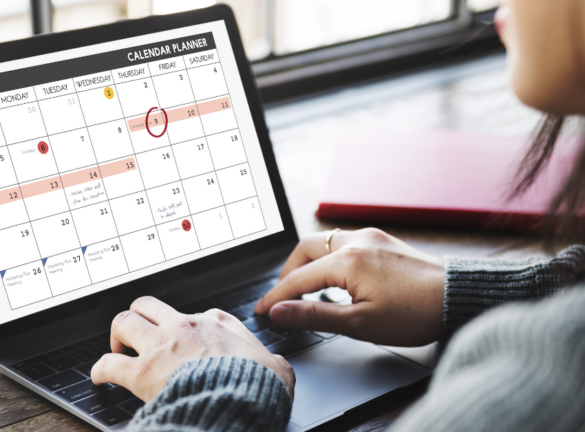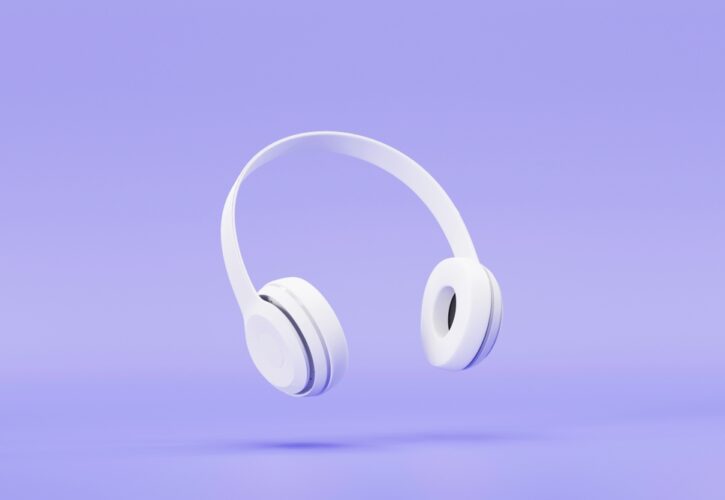
Have Podcasts Killed the Radio Stars?
“It’s crazy to think that we relied on radio for so long, for audio entertainment… and now everyone swerves radio…it gets blanked”
As I was on my commute this week, listening to the Off Menu podcast, Danny Dyer said this, and while it may have been a throwaway comment (and maybe unsurprising as he was a guest on a popular podcast), it got me thinking about the audio landscape, the impact of the huge growth of podcasts and whether his attitude towards radio is justified.
There really is a podcast for everything nowadays with 4,198,326 registered podcasts globally and podcast listenership has seen consistent growth in the UK – a third of the UK population listen to podcasts weekly (34%), but what’s important for marketers to keep in mind is that it doesn’t need to be an either-or situation. Podcasts haven’t killed radio, and we can see that radio consumption hasn’t actually seen a decline across the last 4 years. Both mediums now have their own strengths, so, if you were, by chance, planning on withdrawing all investment in radio off the back of Danny Dyer’s comment, it might be worth considering where either radio or podcasts, or maybe both, can work in your upcoming marketing plans.
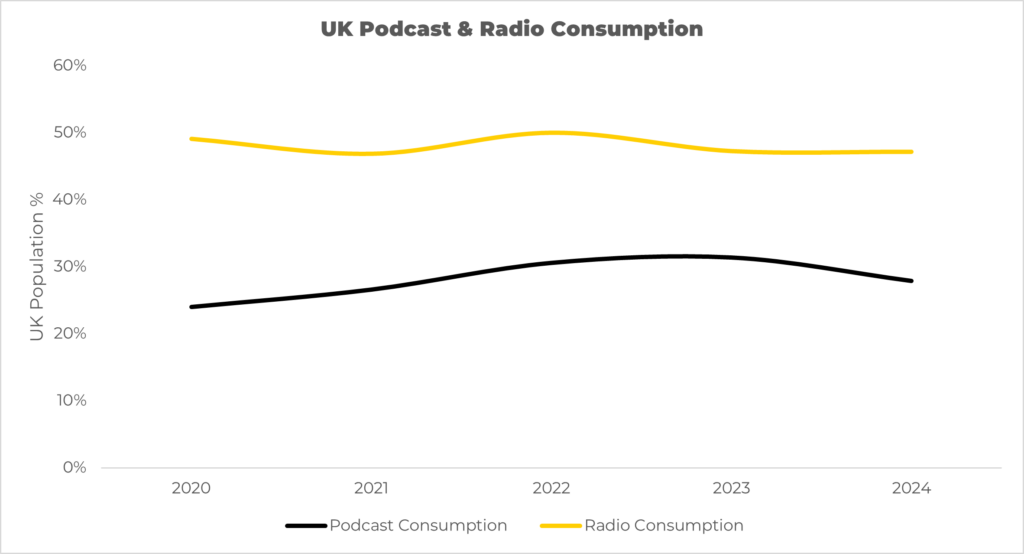
Source: GWI Core, Media Consumption (more than 30 minutes daily), Podcasts and Radio, UK
Brand Building
When it comes to long-term brand building, radio hasn’t budged.
The stats around radio’s power in brand building are pretty undisputable. 70% of the population listen to commercial radio for 2 hours a day so in terms of reach, it’s right up there with TV – and it’s more cost-efficient!
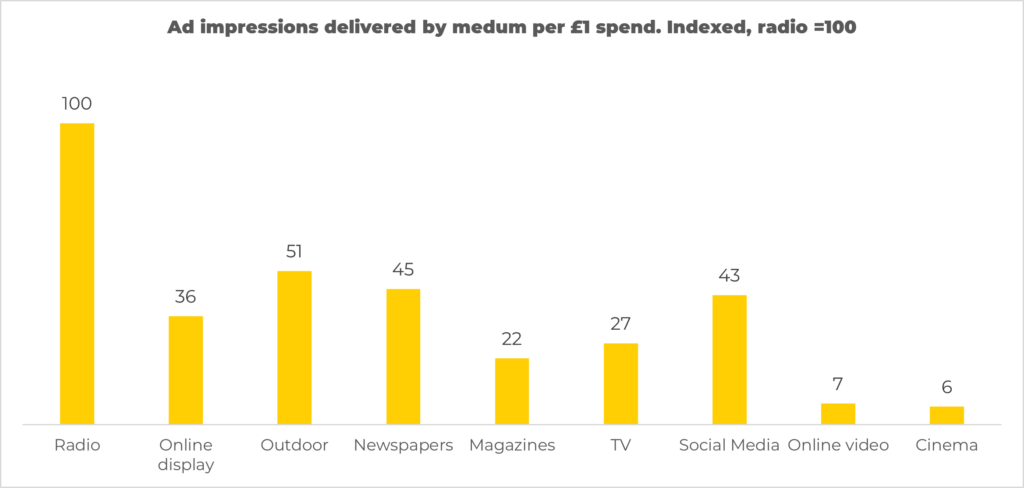
Source: Ebiquity
Another area where radio excels is creating an emotional connection with listeners. Live radio has a unique ability to make listeners feel energised, uplifted and connected. On average, when consuming radio, happiness and energy scores increase by 100% and 300% compared to when no media is being consumed and research highlights that this emotional influence that radio has makes listeners twice as receptive to advertising.
Trust
Historically, radio has enabled DJs like Chris Evans and Gemma Atkinson to feel like they’re part of the family, familiar, trustworthy voices help add to radio’s reputation as a trusted medium. It’s actually the most trusted medium for many countries across Europe. Eurobarometer’s annual survey found that radio was trusted by 56% of the population on average, compared to 49% for both TV and press. We can see this trust in action when our favourite DJs move radio station. Following his depature from BBC Radio 2 to Greatest Hits Radio, Ken Bruce brought an average of 1.6 million listeners with him.
This level of trust helps to build brand credibility – people are 31% more likely to trust a brand when it’s been advertised on radio and people exposed to radio advertising within a campaign are 62% more likely to trust a brand.
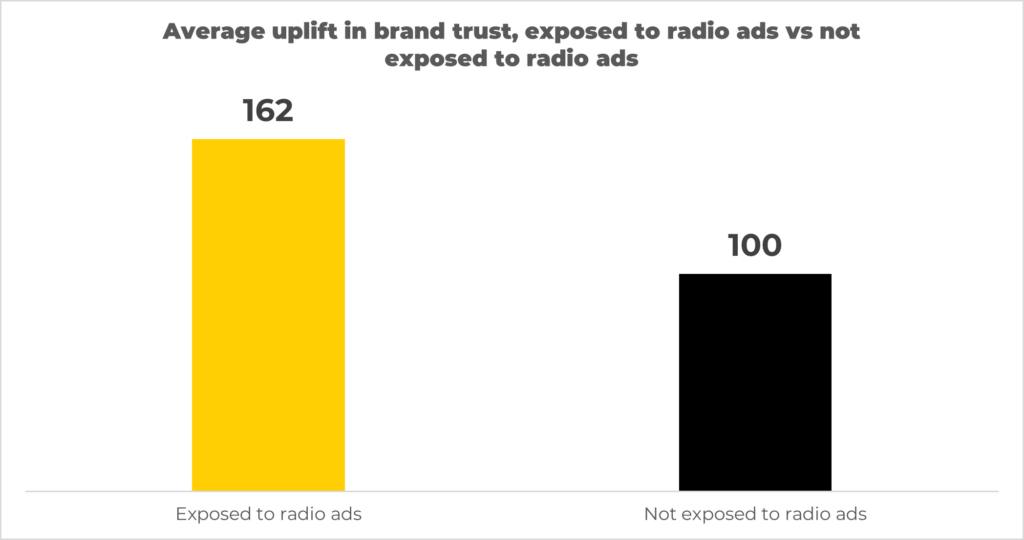
Base: 85 campaigns, average radio spend: £414K
Source: Radiogauge from the Radiocentre
We know that radio’s ability to prompt positive emotions from listeners helps build trust, but podcasts are also a positive medium. Podcasts rank number 1 against all other media for:
- Being a good use of time.
- Being good for learning.
- Being mentally engaging.
Consumers are more likely to listen to a podcast based on their interests or because the host is someone they’re a fan of. As a result, 45% of Millennials and Gen Zs say that when they hear an ad during a podcast, they trust the brand/product being promoted because of the relationship they have with the hosts. This is where podcast ad formats like host read can really leverage this listener-host relationship and drive impact.
The one-to-one nature of audio has its advantages, especially when it comes to building trust, and while radio is still the winner in this regard, podcasts are also able to leverage the strong emotional connection between podcasters and listeners.
Demographics
When we start looking at demographics, we see a big difference in which groups prefer radio, and which prefer podcasts.
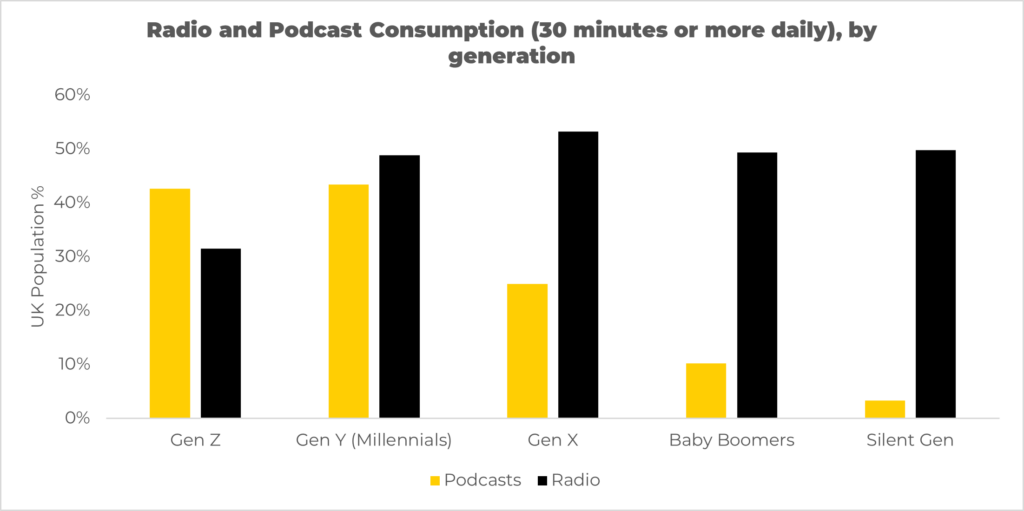
Source: GWI Core, Waves: Q3 – Q4 2023, Q1 – Q2 2024, Media Consumption (30 minutes or more daily): Podcasts and Radio, segmented by generation.
While radio consumption creeps up by generation, podcasts trend the opposite, and by a higher margin. There are two key takeaways from this:
- Radio consumption is stronger cross-generation.
- Podcasts have strong usage from Gen Z and Millennials but reach declines as age increases.
Marketing to Gen Z poses challenges. They’re harder to reach via more traditional media like linear TV and radio so require a more unique media mix in comparison to older generations. Despite these challenges, what we do know is that Gen Z love podcasts with the % of the UK’s Gen Z’s regularly listening to podcasts increasing each year.
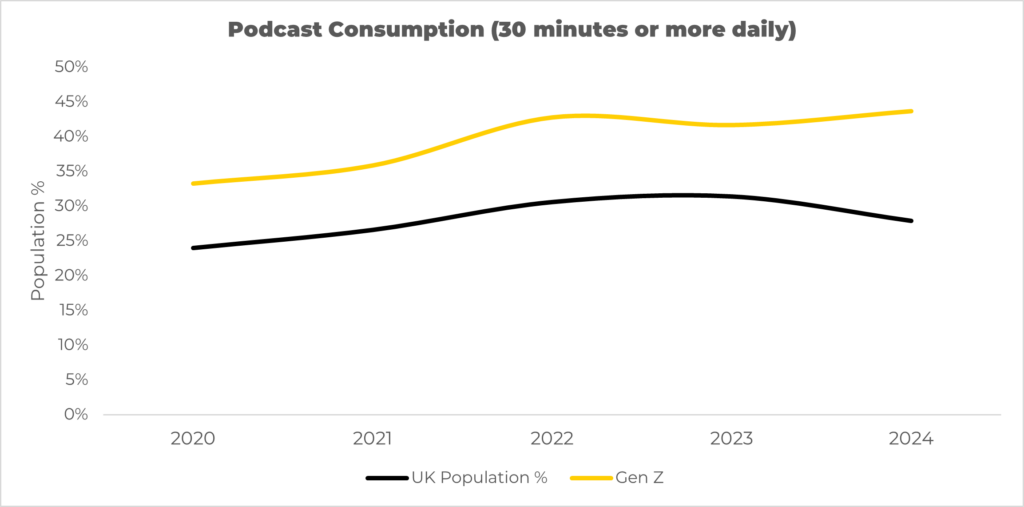
Source: GWI Core, Q1 2020 – Q2 2024, UK, Media Consumption: Podcasts (30 minutes or more daily)
If you’re running a campaign with strict targeting on Gen Z and/or Millennials then podcasts may take preference over radio whereas if you’re driving awareness of over 50’s travel insurance, radio is likely to be your best bet. Or it may be worth considering how both mediums can work together. 61% of podcast listeners also regularly listen to the radio, so leveraging the targeting capabilities of both can achieve reach to boost campaign performance.
So, is Danny Dyer, right?
I think it might be a bit of sweeping statement to agree that everyone “swerves radio” and it’s all about podcasts now.
There’s no doubt that the numbers surrounding the growth of podcasts show their exciting role in the media landscape, but radio is not being pushed aside easily. This is reflected across ad spend figures with £715.5 million spent on radio advertising in the UK in 2023 versus £83 million spent on podcast advertising.
Sure, if your target audience is in that Gen Z or Millennial age group, prioritising radio over podcasts would be a risky move, especially when we can see podcast engagement increasing for these generations year after year.
The value of radio, especially for brand building and achieving reach, is still high.
Consider your marketing goals, analyse your audience’s media consumption, and use data to inform whether your strategy should incorporate radio, podcasts, neither or both.


